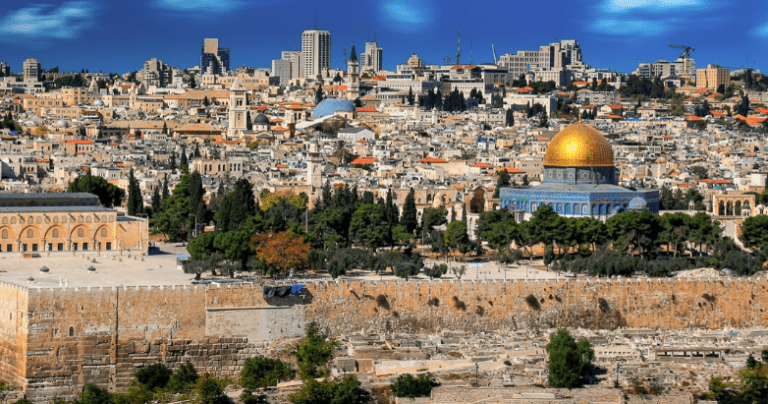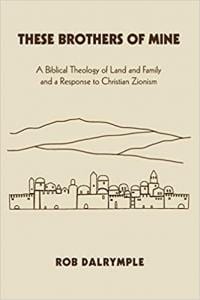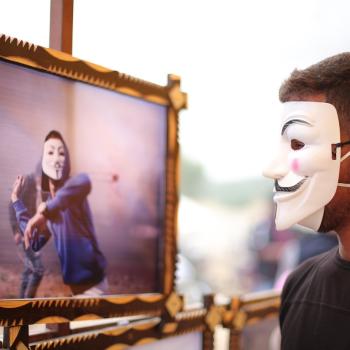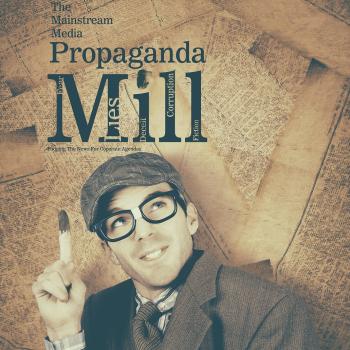
My wife and I have worked for the past 14 years trying to be a voice to the evangelical church with regard to the conflict in Israel-Palestine.
Knowing how explosive an issue this is for evangelicals; we adopted a strategy that might be labeled as “slow and steady.” Don’t give them too much. Start with what they can handle. Give them time to process.
We tried this strategy. And I must say that I think it has largely been ineffective. Sure, there have been some who have come to understand the injustices that are taking place and are working to overcome them along with the myriad of misperceptions.
But, overall, the problems on the ground remain. In fact, things are worse than when we began. Much worse.
The Status Quo
Though many have come to believe that aside from the occasional strikes from Hamas and the Israeli response to said strikes, things are relatively stable with regard to the conflict.
The fact is, however, that the present “status quo” benefits Israel: which continues to build settlements in the West Bank and slowly and systematically confiscate more and more Palestinian lands.[1]
For the Palestinians, the present “status quo” leaves them suffering under the continued oppression of Israeli occupation.
The status quo in Israel-Palestine is not a “status quo.”
Thus, we cannot be silent. We tried the slow route. It didn’t get us anywhere. In fact, things are far worse today for the Palestinians than when we began addressing this issue 14 years ago.
The slow route might work if we had 20 more years. But, as anyone acquainted with this conflict knows, we don’t have 20 more years.[2]
Over the next several posts, I intend to address more acutely the injustices that occur daily in the West Bank and Gaza and why this is not good for the Palestinians or Israelis.
My story 
As I wrote in my book, These Brothers of Mine, I was raised in a conservative, evangelical world. I fully embraced the evangelical Christian Zionist convictions that Israel’s restoration in 1948 and their victories in 1967 and 1973 wars were a fulfillment of prophecy. I believed that God had restored His people (the Jews) to the land which He had promised them more than 3,000 years ago. And I believed that all of this was a sign of the imminent return of Jesus.
As I advanced in my biblical education, I began to question many of the theological convictions regarding Christian Zionism and the restoration of Israel that I had once embraced.
There was, however, another part of the story that I didn’t understand: namely, what was happening on the ground in Israel and the Palestinian territories.
For many years, I had also come to accept the popular narrative—a narrative that has been significantly influenced by evangelical Christian convictions regarding the fulfillment of prophecy and by the United States’ self-interests in the region.
This narrative commonly claims that the Israelis are the good guys who need the support of the United States and that the Palestinians are largely Islamic terrorists who oppose the restoration of the Jewish people to their historic homeland and have no capacity to live in peace with their Jewish neighbors.
NB: I have learned from my time in the land and from meeting the people that, as with most conflicts, there are no “good guys” and “bad guys.” The average Israeli and Palestinian families are just like us. They want to live in peace with their neighbors and raise their kids with hope for the future like the rest of us. The narrative that proposes that this is not possible in this part of the world is part of the propaganda that I, and many in the West, had come to embrace.
This popular narrative both served to reinforce the evangelical convictions about the end of the world and the United States’ self-interests in the region.
It wasn’t until I started traveling to the land that I began to see for myself what life in Israel-Palestine was like. After multiple trips, I began to realize that much of what I had come to believe about life on the ground for Israelis and Palestinians was either not true or seriously incomplete.
Two narrative elements of the conflict
From the perspective of the evangelical world in which I was raised, there are these two narrative elements to the present conflict: there are the theological convictions of evangelical Christians and the larger geopolitical realities.
Having earned a PhD in biblical interpretation, I believe that I have a handle on the theological part of the equation. I knew that I needed to learn more about what life was like for people on the ground.
NB: as with any geopolitical reality there is no way anyone can truly understand all of the complexities behind a conflict. My concern was simply to gain an understanding in order to discern whether or not the narratives that I had come to embrace truly reflected the realities on the ground for Israelis and Palestinians and to come to terms with my evangelical complicity with regard to any injustices.
So, our journey began. My wife and I began to meet Jews and Arabs, Israelis and Palestinians. We wanted to hear their stories.
I traveled to the land several more times. My wife visited the land. Our kids visited the land.
We traveled to Washington DC and attended Congressional dinners. We attended briefings by the National Security Council and other key leaders within the US government, as well as foreign ambassadors.
We visited the state department and spoke with the President’s advisor for religious affairs.
We learned from Israelis and Palestinians. We spoke with activists and human rights leaders. We have been in the homes of rabbis and imams. We have learned from Christians, Jews, Muslims, and Druze.
We have talked with hundreds of Jews and Arabs. We sat in their homes. They came to ours. We ate with them. We heard their stories. We learned from them. We laughed with them. We cried with them.
We have learned that many of them are moms and dads who simply want to raise their kids in peace and in a society that offers them hope for the future.
The more we learned the more we grieved.
We expressed our sorrow and we asked for their forgiveness. Why? Because the narrative that we embraced for many years has been a key catalyst for perpetuating the conflict and causing great hardship.
That narrative was largely inaccurate and we must own some of the blame. . . .
to be continued
NB: our goal is to keep these posts free of charge. I do not intend to ever hide them behind a paywall. I can only do this if those of you who have been blessed by them and can afford to give ($5, $10, $25, or more/month) do so. You can give a tax-deductible contribution by following this link.
Please share this post and let others know about determinetruth.
If you wish to view this blog on your smartphone through the Determinetruth app simply download the “tithe.ly church” app on your smartphone and insert “determinetruth” as the church name you wish to follow. Once it is loaded, simply click on the “blog” icon and it will automatically load.
If you would like to have Rob speak at your church or organization in person or via zoom, please let us know by filling out the contact info on the Contact me tab on this site.
[1] Though one may question if the present “benefits” to Israel are actually in their long-term best interest. Israel continues to provoke the ire of much of the middle eastern and Islamic world, as well as some White extremists. If we love Israel, we would do well to speak up before Israel is engaged in a conflict that might very well threaten their long-term survival.
[2] I’ll address some of the reasons why in upcoming posts.












